In my makefile, I would like to check for the existence of a library and give an informative error message. I created a conditional that should exit the make process when the file is not found:
9: ifeq ($(${JSONLIBPATH}),)
10: JSONLIBPATH = ${ALTJSONLIBDIR}/${LIBJSON}
11: endif
12: ifeq ($(${JSONLIBPATH}),)
13: $(error JSON library is not found. Please install libjson before building)
14: endif
My makefile gets stuck on line 13:
Makefile:13: *** commands commence before first target. Stop.
After line 13, my makefile has its targets.
I tried putting this conditional block into a target (e.g. a target called isJSONLibraryInstalled) but this does not execute correctly.
How would I check for a file's existence and handle the error case, before processing targets? Apologies if this is a dumb question.

